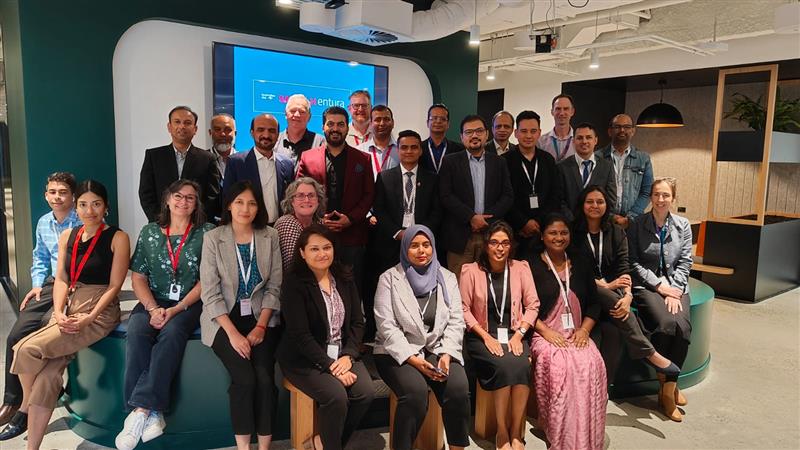Networking played a pivotal role, with dedicated sessions on the first (11th November) and last day (22nd November) of the program. These sessions facilitated engagement with key industry leaders from Entura, Hydro Tasmania, UGL, the Tasmanian Department of State Growth, the Australian Department of Foreign Affairs and Trade (DFAT), and other private and government sector stakeholders. A highlight of the networking event was an interactive session on renewable energy was designed to encourage inter-country knowledge sharing and participation. Participants actively discussed regional challenges and opportunities, fostering meaningful dialogue and potential collaborations for the future. On the final networking day, Amanda Ashworth, Managing Director of Entura, highlighted the importance of continued engagement, stating:
“This was the third training we delivered with SARIC. Keeping the connections alive allows us to continue learning from one another and explore opportunities for future collaborations—aligning with SARIC’s mission to strengthen regional ties for a sustainable future.” Participants highly valued the networking opportunities, recognizing SARIC’s role in expanding their professional networks and enhancing their capacity to shape future policies and innovations in the energy sector.
SARIC recently hosted a 12-day Renewable Energy – Solar, Wind, and Batteries Training Program in Melbourne, Australia, from 11th to 22nd November 2024. Conducted by Entura’s Clean Energy and Water Institute, the program brought together 19 energy professionals from South Asia, fostering collaboration and knowledge exchange in the renewable energy sector.
The training featured expert-led sessions, interactive case studies, and field visits to key renewable energy sites, including Australia’s largest on-campus solar farm in Girgarre, Deakin University’s renewable energy microgrid, Yaloak South Wind Farm, and the King Island Renewable Integration Project. These site visits provided participants with hands-on insights into the practical application of multiple renewable technologies. A key focus of the training program was gender inclusion, with dedicated discussions on Gender Equality, Disability, and Social Inclusion (GEDSI). This session emphasized the social impacts and ESG (Environmental, Social, and Governance) standards in renewable energy projects, reinforcing the need for inclusive policies in the sector.
